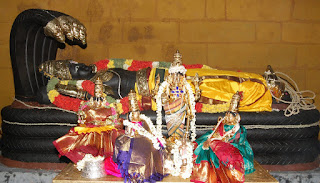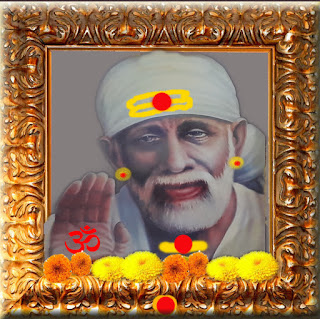DEPRESSION -THE ANATOMY AND PHYSIOLOGY
This is the sacred sound and spiritual icon of the Hindu religion.Now it has been researched and proved that the incantation of the word OM relaxes you, clears your mind and has good effect on heart and other systemic functions. Including the brain.
Now we come to brain and depression syndrome. Now what is Depression? It is a mood disorder causing a persistent feeling of anxiety, lack of security, lack of confidence, having fixed perverted thoughts,suicidal tendencies etc. It not only affects the patient, but also affects the relations of the patient adversely and makes life also miserable for family and relations.
The mood swings consist of persistent sadness, anxiety, or “empty” feelings, fatigue and decreased energy. It can interfere with a person’s ability to work, sleep, eat, concentrate, make decisions and enjoy life. Some people may experience mild depression only once in their lives, while others have several severe episodes over their lifetime. This more serious, long-lasting and intense form of depression is known as major depressive disorder (MDD). It may also be referred to as clinical depression or major depression.
In MDD the patients the patients show lack of interest in the activities they once enjoyed, sleeping too much or too little, increase or decrease in appetite leading to excessive weight loss or weight gain, excessive or inappropriate feelings of guilt or worthlessness, difficulty making decisions, thinking, and concentrating.
People of any age can develop depression, but the average age is the thirties.Researchers have proved that the patients with a family history are more prone than others, a stressful life event, an unhappy childhood, an unhappy teenage phase may be the underlying cause.
And biochemical reactions in the brain. Chemicals in the brains of MDD patients are said to be different from those of normal people.
And hormonal imbalances like menopause, post Hysterectomy status, pre and post pregnancy status can aggravate the depression state of the patient.
Three parts of the brain play a role in MDD, the Hippocampus, Amygdala and prefrontal cortex. The hippocampus is located near the center of the brain. It stores memories and regulates the production of a hormone called cortisol. The body releases cortisol during times of physical and mental stress, including during times of depression. Problems can occur when excessive amounts of cortisol are sent to the brain due to a stressful event or a chemical imbalance in the body. In a healthy brain, brain cells (neurons) are produced throughout a person’s adult life in a part of the hippocampus called the dentate gyrus. In people with MDD, however, the long-term exposure to increased cortisol levels can slow the production of new neurons and cause the neurons in the hippocampus to shrink. This can lead to memory problems.
Thus the the very anatomy and physiology of a normal brain differs from that of the brain of a MDD patient. “This is what makes depression so dangerous. In contrast to other diseases, depression is very stigmatizing, and people often think it is the person’s own fault."
For instance, researchers now know mechanisms in the brain regulate emotional behavior, so they developed ways to see how certain treatments impact mood and physical symptoms in an individual. Even more exciting is where research is headed. “We’d like to…develop new treatments that target the specific biological markers of the disorder. We’re also working on developing more medicines that work quickly so that patients suffering from depression and suicidal thoughts can receive quick relief, as opposed to the three weeks it would take for an older medicine to work" says Dr.Wayne Drevets. Thanks to the work of Wayne Drevets and hundreds of other researchers, what’s on the way promises to be nothing short of amazing.
Mental illness is a very complex disease, but researchers are working around the clock to unearth innovative ways to treat it. With researchers’ latest findings, and the hundreds of promising clinical trials currently in development, their research becomes even smarter over time. And researchers' fight against complex diseases like mental illness extends beyond the lab; their dedication gives millions of people new reasons to hope.
But as I mentioned about the Hindu spiritual incantation from India which is now practiced worldwide, "OM" works magic on these patients. When a person chants "OM"there is a positive vibration all around and the sound stimulates the branch of the all important Vagus nerve supplying the ears and thereby the main Vagal nerve trunk. Vagus nerve stimulation has been proved to be efficient in treating depression and Epilepsy.
The above facts can be studied in this article in International journal of Yoga :
Neurohemodynamic correlates of ‘OM’ chanting: A pilot functional magnetic resonance imaging study
Bangalore G Kalyani, Ganesan Venkatasubramanian, Rashmi Arasappa, Naren P Rao, Sunil V Kalmady, Rishikesh V Behere, Hariprasad Rao, Mandapati K Vasudev, and Bangalore N Gangadhar |
| THE EFFECTS OF OM CHANTING SENDING SIGNALS TO DIFFERENT PARTS OF BRAIN |
So let us join hands to fight Depression which if untreated is a very debilitating disease affecting not only the patient,but the family and close relations as well. A healthy lifestyle, reduction of weight and fitness goals, getting out of the house for exercise or walking, partaking healthy food, along with stress reduction by OM chanting will definitely change the patient to a new healthy and caring person.












Comments
Post a Comment